-
How Your Construction Site Can Cut Your Waste
Proper waste management is critical for any construction site. During the construction or demolition process, your site may generate large volumes of waste materials. Rather than tossing all of your waste in the trash, talk to a company that offers metal recycling and other services near Atlanta . By recycling, rather than tossing, your waste materials, you can offset the environmental impact of your construction project. Some ways that your construction site can cut down on waste include:
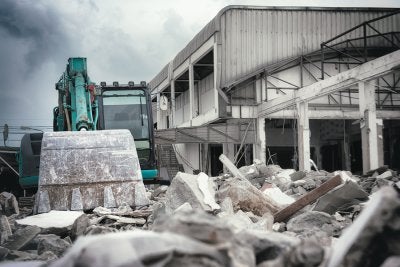
Perform a Site Evaluation
Whether you are demolishing an existing building, or are creating a brand new structure, your waste management plant needs to start with a thorough site evaluation. During your site evaluation, you will create a detailed list of the types of waste materials that will be generated throughout the course of your project. Using this information, you will be able to obtain the resources that are necessary to recycle or repurpose the majority of your construction waste. A waste management company can assist you with site evaluation services.
Create a Waste Management Plan
In order to ensure that your construction site is as waste-conscious as possible, you will need to get your entire team on board with your waste management plan and protocol. It may be necessary to develop an assembly or deconstruction protocol that prioritizes waste reduction. During the building process, focus on using materials that are eco-conscious and built to last. Finally, your waste management plan should also include strategies for recycling excess materials, whenever possible.
Contact a Waste Management Company
To ensure that you are reducing waste as effectively as possible, it may be necessary to get in touch with a waste management company that serves your area. With professional waste management services, you will have access to the dumpster rentals and recycling tools that are needed to manage materials on your site. A team of waste management experts will be able to help you create an efficient and effective waste reduction plan that you can easily implement on your jobsite.
-
Tips for Reducing Commercial Kitchen Waste
Commercial kitchens are notorious for generating large amounts of waste. From uneaten dishes to food preparation scraps, your restaurant may create excess amounts of wasted materials that are thrown out every single day. A company that offers waste management and recycling serving Atlanta can help you audit your restaurant’s trash and recycling in order to create an effective strategy for waste reduction . To help you reduce, reuse, and recycle in your kitchen, read these tips for reducing commercial kitchen waste.
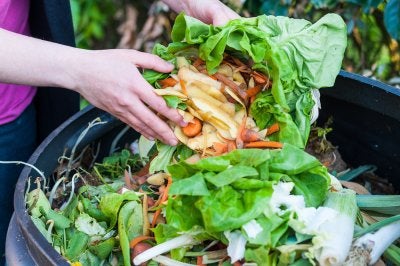
Monitor Your Fresh Produce
When fresh produce goes bad, it will have to be thrown in the trash. Since spoiled produce items can make up a large portion of your restaurant’s daily food waste, it is essential that you monitor your fresh produce order daily. By ordering only what you need for your daily service, you can cut back on the amount of food that you end up tossing out at the end of the week. You can also keep your produce from spoiling by using older items first, before they start to go off.
Manage Your Temperature Control
Keeping food items at the correct temperature is a critical aspect of food service safety. If your refrigerator or freezer is not dialed to the right setting, you may end up throwing out a week’s worth of food that has gone off. To reduce commercial kitchen waste, you will need to make sure that all of your workers are aware of the importance of proper temperature control in your kitchen.
Create a Recycling Program
Many of the pantry items in your kitchen will come to you in cardboard boxes or other packages that can be recycled. If you are looking for an effective strategy for reducing commercial kitchen waste, you may want to create a recycling program for your employees. During each shift, your workers can break down boxes, wash out cans, and prepare other types of packages for the recycling bin. Recycling, rather than throwing out, these items will dramatically improve your restaurant’s environmental footprint.
-
Using Signage and Bins to Minimize Waste
When you create a brand new recycling program for your business, you will need to make sure that your recycling bins are properly labeled. This video will provide you with an overview of the benefits of using signage and bins to minimize waste. By creating clear signs for your recycling bins in Atlanta, it will be possible to make sure that your customers and employees are correctly following your waste disposal strategy.
After you have decided that you want to cut back on the waste that is generated by your business, your next step will be to rent or purchase the appropriate bins. From recycling bins to dumpsters and more, a waste management company can provide you with the tools that you need to properly dispose of your trash and recyclables.
-
Understanding the Categories of Hazardous Waste Generators
Hazardous waste is a byproduct of many industrial processes. If your business creates hazardous waste during its daily operations, you will need to create a waste management plan that complies with federal and state regulations. A company that offers dumpster rental near Atlanta can help you manage your hazardous waste and set up regulated waste disposal services for all of your byproducts. To assist you as you create your waste management plan, here is a closer look at the three categories of hazardous waste generators.
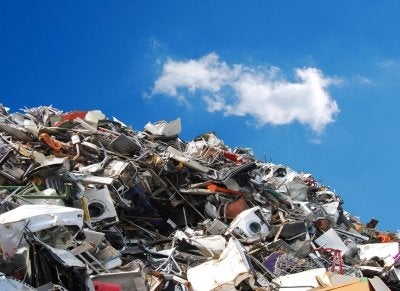
Conditional Exempt Small Quantity Generators
Conditional Exempt Small Quantity Generators are typically referred to as CESQGs. In order to fall into the CESQG category, a person or business must create no more than 100 kilograms of hazardous waste each month. If you or your business has recently been classified as a CESQG, you will need to make sure that you keep track of all of your daily waste products. It is also necessary to send your hazardous waste to a facility or waste management station that specializes in processing hazardous goods.
Small Quantity Generators
Small Quantity Generators create more than 100 kilograms of hazardous waste each month, but their hazardous waste totals must not reach more than 1,000 kilograms in a month’s time. For the first 180 days of their operations, Small Quantity Generators are allowed to operate without receiving federal hazardous waste permits. Each Small Quantity Generator must process their waste in an approved container or tank, and there also needs to be an emergency response coordinator on site to deal with unexpected leaks or spills.
Large Quantity Generators
Large Quantity Generators are typically major industrial facilities that create upwards of 1,000 kilograms or more of hazardous waste every month. Each Large Quantity Generator must have its own, on-site containers or approved waste disposal bins. According to EPA regulations, Large Quantity Generators must also meet all standards that are set out in the hazardous waste manifest. A Large Quantity Generator must also provide written reports to the EPA twice during each calendar year.
-
The Effects of Plastic Bags on Marine Life
Trash bags and other forms of plastic waste have a significant impact on the safety and wellbeing of ocean creatures. In this video from National Geographic, you will take a dramatic look at what is like for a marine creature to become trapped in a plastic bag. With proper waste management in Atlanta, you can do your part to protect our oceans.
If you would like to set up plastic recycling services for your home or business, be sure to get in touch with a qualified recycling center that services your local area. Your waste management professionals can help you create an ocean-conscious recycling program that helps to preserve our marine life for many generations to come.
-
What to Do About Restaurant Waste
If you are a restaurant owner, then you are aware of the incredible amount of food waste that can be produced in this type of commercial environment. If you feel frustrated with the amount of waste and the high costs of waste disposal that you deal with at your establishment, then you can benefit from learning about what you can do about your restaurant waste near Atlanta.
The first step in developing a better waste management system is to reduce the amount of waste produced. To do this, begin taking a regular inventory of items that are frequently thrown out so that you can develop a better system for using the ingredients efficiently and purchasing only as much as you will use. Next, consider your options for disposing of the food waste other than tossing it in the dumpster. There is a wide range of items accepted by food banks that may include some of what you regularly toss out. Also, you can donate your food scraps to local farms or animal sanctuaries, where they can be used to feed animals. Finally, learn if there is a composting system in place in your area that accepts restaurant waste for recycling.
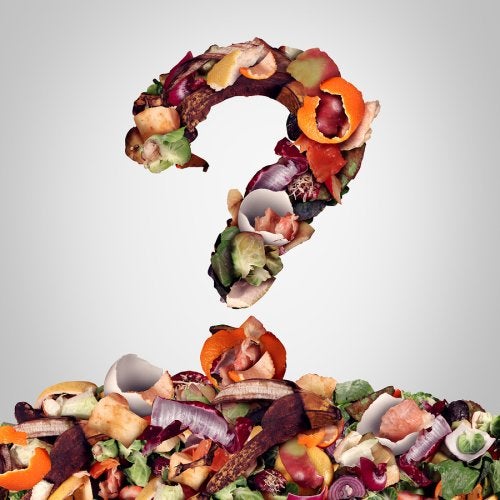
-
Up Close with the Waste Management Needs of a Grocery Store
Grocery stores are responsible for the contents of most Americans’ pantries. They’re the all-important conduit between farmers and consumers. Part of running a successful grocery store is making sure all waste needs are taken care of; after all, no one wants to shop at a grocery store with an overflowing dumpster nearby. Here’s a look at the average grocery store’s waste management needs and how those needs can be satisfied by waste disposal experts in Atlanta .
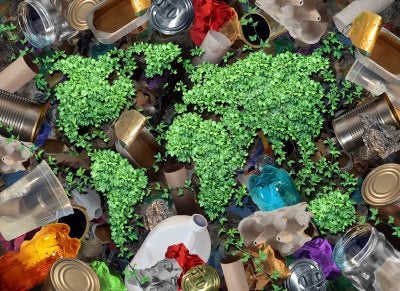
Packaging
Grocery stores have thousands, if not millions, of units of product delivered every year. Whether these products are from down the street or across the ocean, they need to be properly packaged to prevent damage or contamination. Once these products arrive, it’s the grocery store’s responsibility to remove and discard the packaging in a responsible manner. Fortunately, most product packaging these days is recyclable, making it relatively easy to dispose of in an environmentally friendly way.
Food Waste
In an ideal world, the average grocery store would sell all of its perishable food products before they rot or expire. In the real world, however, grocery stores need to find a way to dispose of any fruits, vegetables, meats, and dairy products that don’t sell quickly enough. Some grocery stores partner with local food banks, which then deliver the food to people in need. Whatever’s left is picked up by a waste management company and delivered to a place where it can be composted.
Renovations
Whether it’s decorating for a new season, altering the layout, or renovating, grocery stores frequently undergo changes to stay competitive. When it comes to this kind of change, the average grocery store is inevitably going to produce some waste. Renting a roll-off dumpster for the duration of these change can help simplify waste management. Once the project is over, a waste management firm can pick up the dumpster and properly dispose of the waste therein.
-
Waste Management in a Senior Living Community
Like any other residential community, senior living communities must take measures to ensure that their waste management needs are met. That said, senior communities have unique considerations that can only be addressed by a select few waste management companies in Atlanta. If you are in charge of handling waste disposal for a senior living community, think about the following factors when settling on a waste management company.
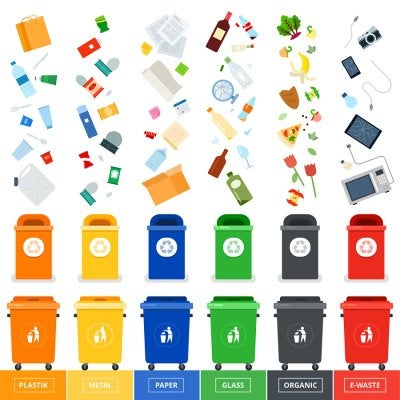
Garbage and Recycling
Dealing with day-to-day garbage is the most obvious waste management consideration for any community. Working with garbage specialists to estimate your community’s average garbage output is an important first step in determining how much dumpster space you need. Don’t forget the importance of recycling—there’s a good change that your staff and residents are throwing away items that can be recycled. Having a waste management company help with recycling can keep recyclable and compostable materials out of landfills.
Biological Waste
Senior living communities tend to have different medical needs than other communities. Some senior communities have a nursing staff to make sure seniors receive the healthcare they need to stay happy and healthy. Administering healthcare in such an environment often produces biological waste that can’t be disposed of in a normal manner. As the manager of a senior living community, you’ll need to find a company that’s qualified and equipped to handle certain types of biological waste.
Medication Disposal
Senior living communities are often targeted by criminals looking for prescription drugs. Not only can this put the members of your senior living community at risk, but it’s harmful to the surrounding community as well. It’s definitely a good idea to work with a waste management company in Atlanta to ensure that your dumpsters are properly secured, or else settle on an alternative method of disposing of medications. Enacting secure waste management practices can keep would-be criminals out of your community and your residents safe.
-
Reasons to Work with Southern Waste & Recycling
Every business produces waste at one point or another. As your business weighs its waste management needs, you should find a recycling company in Atlanta that offers the right services with the right attitude. Southern Waste & Recycling has years of experience providing our Atlanta clients with a wide range of waste management services, including roll-off dumpsters, industrial waste management, junk removal, and more.
At Southern Waste & Recycling, we provide transparent and professional service. We comply with all state and local guidelines, and all our waste management professionals have received the proper training. We also work hard to execute our clients’ day-to-day requirements and help streamline their logistics as much as possible. Throughout the project, our team members provide analytical data and reporting; and once the project is done, we offer our clients simplified and consolidated invoicing. When you work with us, we will ensure that all of your waste management needs are met, and we’ll do it with a smile on our face.
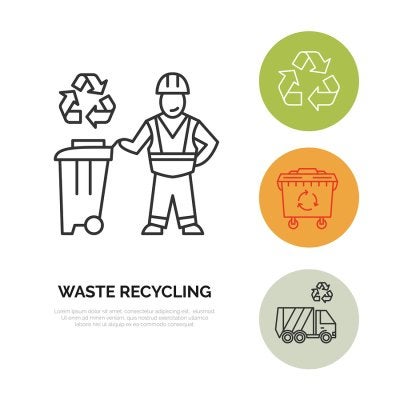
-
Methods of Industrial Waste Management
If you own a company that generates hazardous or industrial waste, it’s crucial that you think about the safest methods of waste management in Atlanta . The most effective methods of industrial waste management are ones that aim to reduce, reuse, and recycle when possible, and that are guaranteed to cause no harm to the environment. Here is a look at the best methods of industrial waste management in your area.
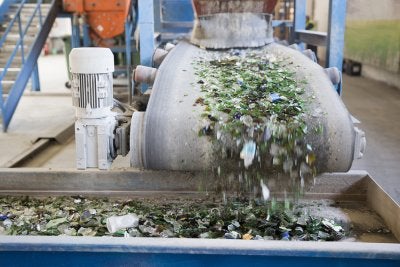
Segregation and Recycling
Much of the waste that is generated by your company’s production, shipping, and packaging needs is not reusable or compostable, but it is recyclable. The first step in your industrial waste management program is to identify which items can be recycled, and set up recycling bins or dumpsters into which they can be sorted. Most recycling centers can handle glass, paper, and plastic recycling. Many can also handle scrap metal recycling, cardboard recycling, food waste recycling, and electronics recycling. You must segregate and separate your recycling from your hazardous waste, compostable waste, and non-hazardous solid waste.
Use of Landfills
Landfills are one of the most common ways to dispose of waste in America. The only waste that should be sent to landfills is that which is non-hazardous, non-recyclable, and non-compostable. When waste is sent to a landfill, it is confined to a small area, compacted when necessary, and then buried in the earth. As the waste decomposes, it releases gases that can be converted to natural gases used for power and fuel. Landfills are cost-efficient and are designed to minimize the harm done to the environment.
Composting
The composting process turns organic waste into fertilizer that can be used to nourish plants. Most food waste can be composted, and even unsafe organic items can be turned into safe composting. You can compost food waste, leaves, newspaper, very small pieces of cardboard, straw, and sawdust. Compost is then added to soil to provide nutrients and encourage growth. Composting is one of the most effective ways to reuse and recycle waste.
RECENT POSTS
categories
- Uncategorized
- Waste Management Atlanta
- Waste Disposal and Recycling
- Hazardous Waste Disposal
- Chemical waste removal
- solid waste removal
- R3 Program
- Sustainable Organizations
- Sustainable Waste Removal
- Commercial Waste Removal
- Materials Management Program
- Dumpster Rental
- Roll Off Dumpsters
- Construction Site Waste Removal
- Sustainability
- Recycling in Atlanta
- Industrial Recycling
- Industrial Waste Removal Services
- Southern Waste & Recycling
- Waste Removal Atlanta
- Waste Specialists
- Atlanta
- Infographic
- Front Load Dumpsters
- Rear Load Dumpsters
- Reusable Electronics
- Dump Truck Atlanta
- Recyclable Electronics
- Trash Compactors
- Recycling
- Recycling Program
- Office Recycling
- Metal Recycle
- Electronic Waste
